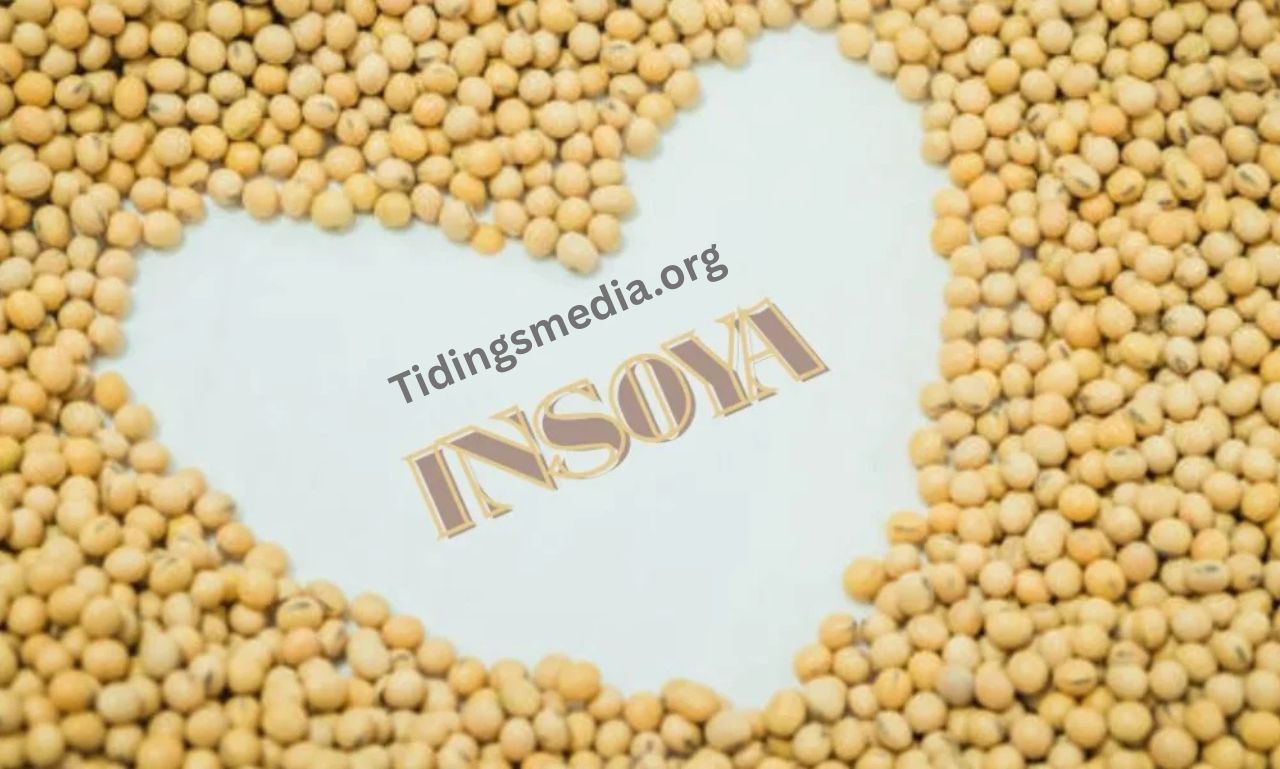In the modern age of health-conscious choices and environmentally friendly lifestyles, one term that is gaining traction is insoya. As more people pivot toward sustainable and nutritious alternatives, stands out as a powerful solution across various industries, from food and wellness to agriculture and sustainability. But what exactly is , and why is it becoming such a buzzword?
This in-depth guide will explore everything about insoya — its origins, applications, health benefits, and why it might just be the future of plant-based living.
What is Insoya?
The word insoya refers to a plant-based product, often derived from soybeans or incorporating soy innovations in unique formulations. It can encompass food products, health supplements, and eco-conscious agricultural ingredients. With a focus on clean nutrition and minimal environmental impact, is making waves as a versatile and reliable choice for consumers.
Whether you’re encountering it in vegan protein powders, meat substitutes, or even agricultural soil enhancers, the core values behind remain the same — sustainability, nutrition, and innovation.
The Rise of Insoya in the Plant-Based Movement
Over the past decade, the plant-based food industry has exploded. As people become more concerned with the ethical, health, and environmental implications of animal agriculture, the demand for alternatives like has skyrocketed.
Insoya products offer:
-
High protein content
-
Essential amino acids
-
Cholesterol-free formulations
-
Lower carbon footprint than animal products
It’s no surprise that companies and consumers alike are leaning heavily into what has to offer.
Health Benefits of Insoya-Based Foods
1. Heart Health
One of the primary benefits of incorporating insoya into your diet is improved heart health. Many products, especially soy proteins, help reduce bad cholesterol (LDL) while maintaining good cholesterol (HDL).
2. Rich in Nutrients
Insoya is an excellent source of plant-based protein, fiber, B vitamins, iron, and calcium. This makes it a great addition to vegan and vegetarian diets.
3. Hormonal Balance
Isoflavones found in can mimic estrogen in the body, potentially easing symptoms of menopause and improving bone health in women.
4. Weight Management
High protein and fiber content make insoya an excellent option for those trying to manage their weight. It promotes satiety and helps reduce overall calorie intake.
Insoya in Agriculture and Sustainability
Outside of food, insoya is also finding a foothold in sustainable agriculture. Some formulations use soy derivatives as organic fertilizers or animal feed alternatives. These products improve soil health, reduce the need for synthetic chemicals, and offer farmers a more sustainable path forward.
With climate change concerns growing, these sustainable uses of are vital. Its cultivation often requires less water and produces fewer greenhouse gases compared to conventional farming staples like corn or wheat.
Insoya vs. Traditional Soy: What’s the Difference?
While many assume that and traditional soy are the same, the term “insoya” often refers to refined, innovative, or enhanced forms of soy used for specific purposes. Here’s how they differ:
| Feature | Traditional Soy | Insoya |
|---|---|---|
| Processing | Minimal | Often refined or enhanced |
| Applications | Food, tofu, soy milk | Health supplements, meat alternatives, agriculture |
| Sustainability | Good | Optimized and improved |
| Market Reach | Common | Emerging and expanding |
The key takeaway is that represents the next step in the evolution of soy-based products — more refined, targeted, and beneficial.
Popular Insoya Products in the Market
The market is currently flooded with innovative products. Some popular categories include:
-
Insoya Protein Powders – Used by athletes and health enthusiasts for muscle recovery.
-
Milk – A creamy, non-dairy alternative to cow’s milk.
-
Meat Substitutes – Burgers, sausages, and nuggets designed to mimic meat texture and flavor.
-
Insoya-Based Fertilizers – Bio-enhancers for organic and sustainable farming.
These products not only meet the needs of modern consumers but also align with eco-conscious business practices.
Is Insoya Safe?
Yes, is generally considered safe for most individuals. However, like any food product, it should be consumed in moderation. Those with soy allergies should obviously avoid it, and individuals with specific hormonal concerns should consult a healthcare provider, especially due to the presence of phytoestrogens.
Choosing Quality Insoya Products
When purchasing insoya items, especially for health or diet, consider the following tips:
-
Read Labels: Look for non-GMO, organic certifications.
-
Check Ingredients: Avoid products with unnecessary additives.
-
Brand Reputation: Opt for brands that prioritize sustainability and transparency.
-
Nutritional Value: Compare protein, fiber, sugar, and fat contents.
Future of Insoya in Global Markets
As awareness of plant-based living and climate-friendly practices grows, the potential for is immense. From Asia to the West, more countries are incorporating into their mainstream diets and farming practices.
Insoya aligns perfectly with future global trends:
-
Climate-friendly diets
-
Functional foods
-
Organic agriculture
-
Clean-label nutrition
Innovation in biotech and food science is expected to push even further — from lab-grown meat enhancers to pharmaceutical supplements.
Final Thoughts
Insoya is more than just a health food trend — it’s a forward-thinking solution for many of the world’s pressing challenges. Whether you’re a health enthusiast, a sustainability advocate, or a curious consumer, incorporating into your lifestyle could benefit both you and the planet.
With its growing list of applications, excellent nutritional profile, and eco-friendly attributes, truly represents the future of plant-based innovation.














